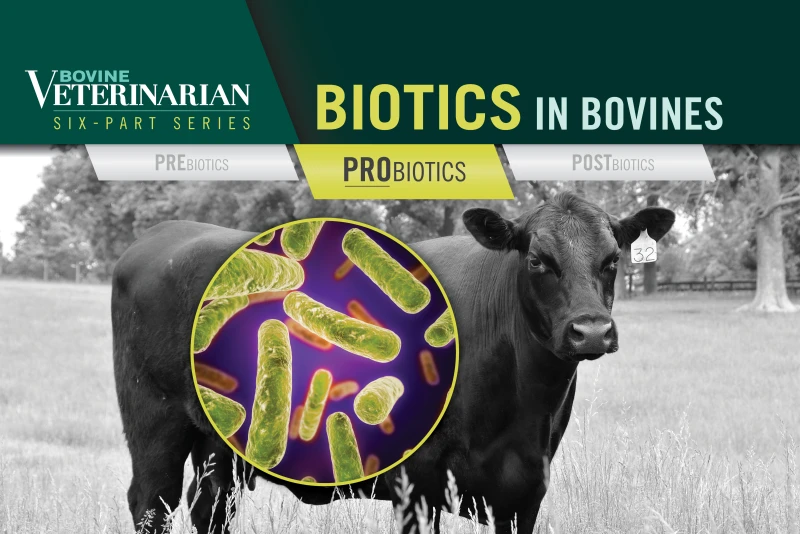
Biotics in Bovines: Probiotic Applications for Beef Cattle
In beef production systems, every gain in efficiency matters whether that’s stabilizing feed intake, supporting growth through stress events or improving animal health. Probiotics might be a way to facilitate this efficiency through fine-tuned rumen and gut health.
This is the fourth installment of the Biotics in Bovines series where we will explore the role and application of prebiotics, probiotics and postbiotics in dairy and beef cattle nutrition. Each installment will examine a different facet of microbiome-focused nutrition from how these products work to what recent research says about their effectiveness and on-farm value. The goal is to help veterinarians and producers make informed, evidence-based decisions about integrating biotic feed technologies into herd health and performance programs.
Probiotcs, defined as live microorganisms that confer a health benefit when fed in adequate amounts, aren’t new to the feed industry. However, recent studies in both grazing and finishing systems have clarified when and how they can deliver measurable results. Rather than blanket use, probiotics in beef systems are most effective when used strategically during transitions, stress or high-energy feeding phases.
What Probiotics Do in Beef Systems
Probiotics used in beef production most often include yeasts (Saccharomyces), spore-forming bacteria (Bacillus spp.), and occasionally lactic acid bacteria (Enterococcus and Lactobacillus).
Their effects center on three main functions:
Questions about this Article?:

Copyright © 2021-2025. All rights reserved
This website stores cookies on your computer. These cookies are used to collect information about how you interact with our website and allow us to remember you. We use this information in order to improve and customize your browsing experience and for analytics and metrics about our visitors on this website. To find out more about the cookies we use, see ourPrivacy Policy.